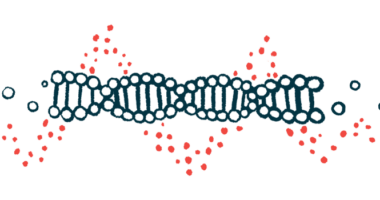Neurogene Natural History Study Still Enrolling CLN5 Patients

A natural history study in people with CLN7 disease is now fully enrolled, but patients with CLN5 disease — each a form of late-infantile Batten disease, and both are in this study — are still needed, Neurogene, which is sponsoring the research, announced.
The study (NCT03822650), underway at the University of Rochester Medical Center in New York, is still recruiting CLN5 patients of all ages, Neurogene stated in a release provided to Batten Disease News. Enrollment information is available here and by calling the Neurogene Contact Center at 866-461-8237.
It aims to enroll a total of 30 people, children through adults with genetically confirmed CLN5 or CLN7 disease.
People taking part in the natural history study can still participate, if eligible, in potential trials of gene therapies that Neurogene is developing for CLN5 and CLN7, the company stated. A request to initiate a gene therapy trial in CLN5 patients is expected to be filed by year’s end.
“The Natural History Study is an important first step on our path to initiate” that trial, Neurogene stated. “We will compare data from the Natural History Study to data from children who have received gene therapy during the clinical trial, to evaluate whether the CLN5 gene therapy treatment we are investigating is effective or improves the condition of patients.”
Favorable results through this comparison “may help satisfy the regulatory requirements” in the U.S. and Europe that are needed for “approval of a gene therapy treatment for CLN5,” the company added.
CLN7 patients participating in the study remotely can continue to do so, but will be encouraged to make occasional in-person visits for evaluations that are not otherwise possible.
CLN5 and CLN7 are rapidly progressing forms of Batten, a rare and severe disease. They are caused by defects in the CLN5 and CLN7/MFSD8 genes, respectively, and characterized by seizures, and progressive loss of motor skills, cognitive abilities, and vision.
Study participants undergo multiple assessments over time to evaluate disease course, including electroencephalography (EEG), neuropsychological and ophthalmological tests, and brain MRI scans. No interventions will be made and no investigational therapy will be given.
Neurogene expects to finish tests this year necessary to support opening a clinical trial in its CLN5 gene therapy, the company’s lead candidate treatment. Both the U.S. Food and Drug Administration (FDA) and the European Medicines Agency (EMA) have given feedback on plans for the trial, and Neurogene said that it is working with Batten experts worldwide to finalize its design.
Should regulatory clearance be given, Neurogene will announce “additional information” on Batten centers that will participate in its CLN5 gene therapy study.
The company is also “working as quickly as possible to develop a safe and effective [genetic] treatment for CLN7,” it said.
Neurogene expects to begin a preclinical study in a mouse model of CLN7 by year’s end that will inform safe and effective dosing for a trial in patients, and assess therapy delivery to both the brain and the eye. Previous preclinical work in animal CLN5 models showed that the gene therapy needs to target the eye as well to prevent blindness.
“Enrollment in the Batten disease Natural History Study continues, despite these challenging times,” Neurogene stated. “We would like to express our sincere gratitude to the participating families.”







